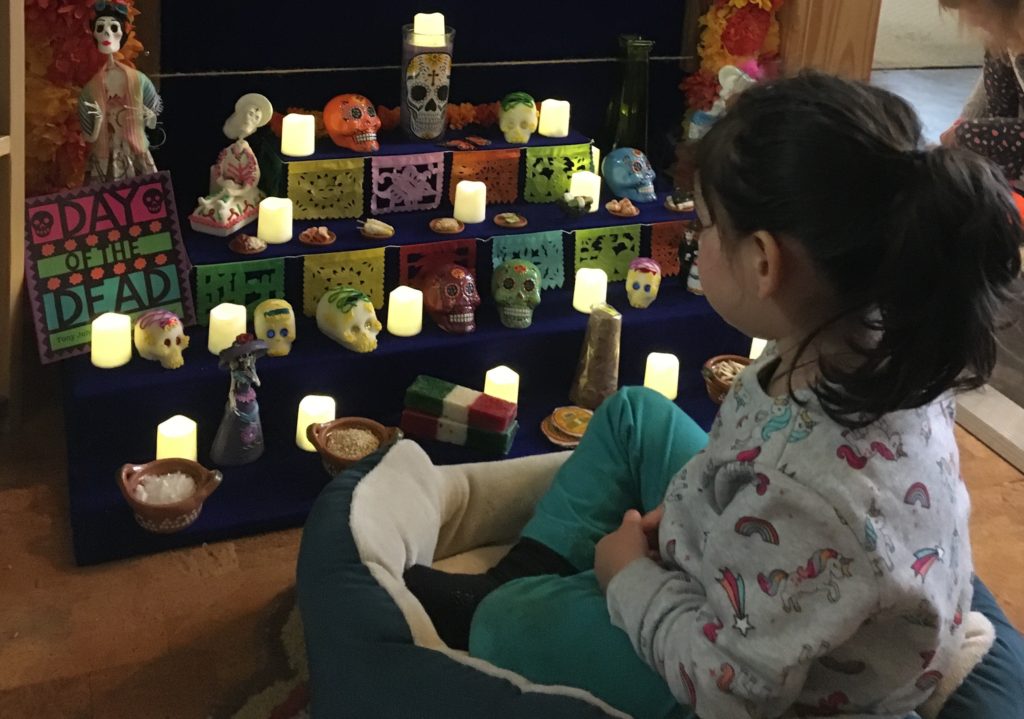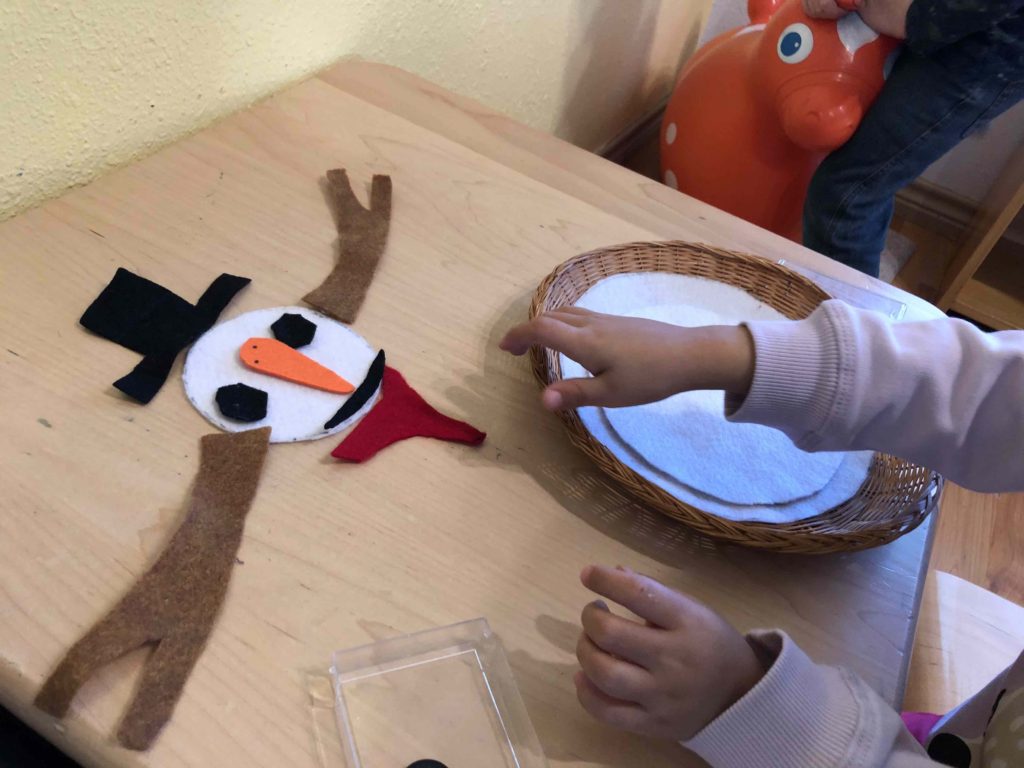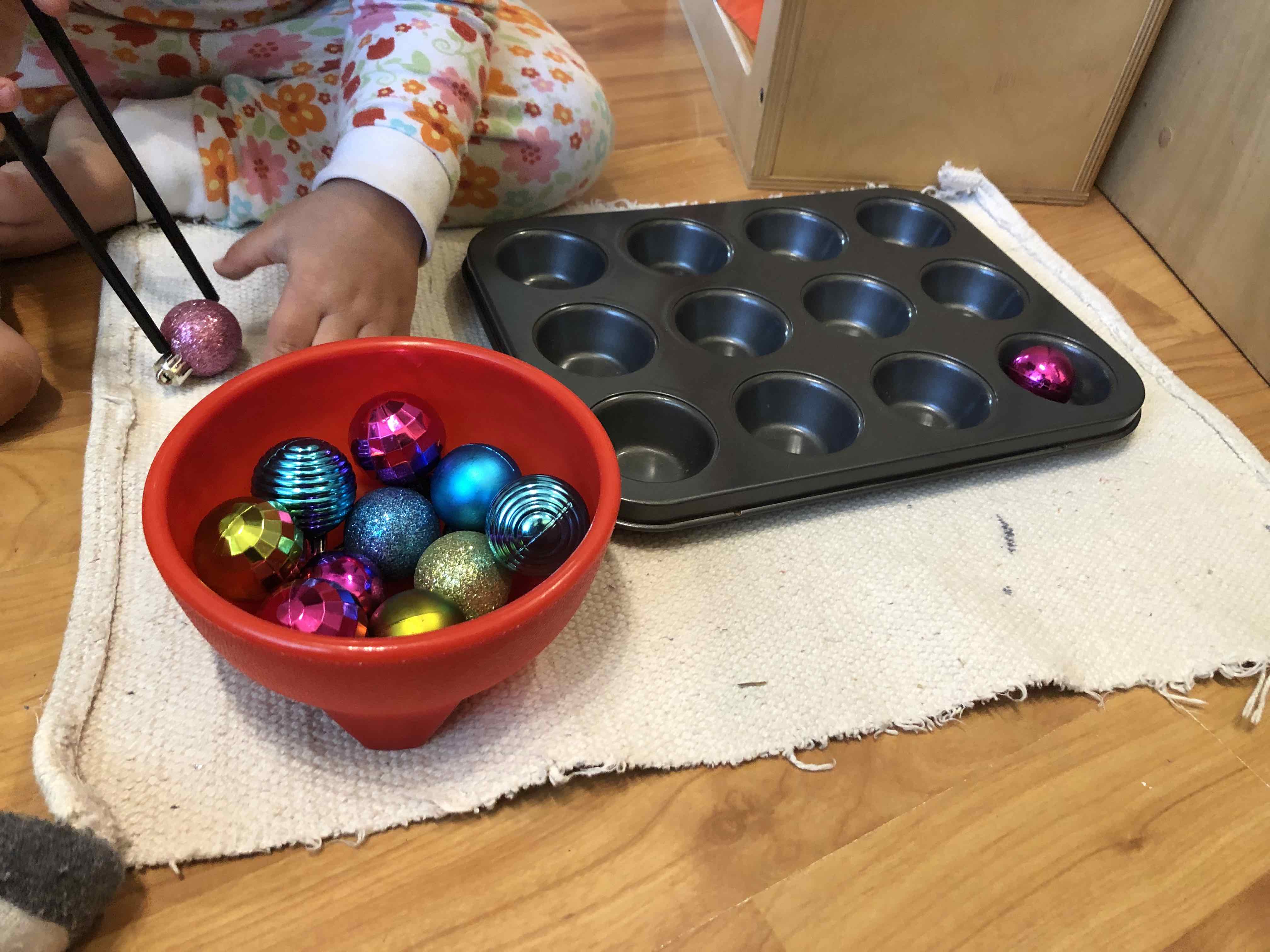We are now two weeks past Halloween and two weeks until Thanksgiving. While October in Austin is a busy time with ACL Festival, Formula 1 and Halloween (and we usually spice up the month with our camping trip), October pales to the excitement of the weeks from Thanksgiving through New Years.
At school, we embrace as many holidays as we can. In addition to Halloween festivities, we revere the Day of the Dead, we decorate a Thanksgiving Tree of Thanks and, of course, the materials on our shelves transform to red and green in December. Indeed, in the New Year the pace of life may slow down but our classroom will continue their renewal with blue and white in January and red again in February and so on through the spring.
With all of this fun, however, the holidays bring gatherings and trips and dinners and presents–oh my! All of the anticipation and excitement can confuse children who are less able to understand spans of time and the emotional significance of events. At school we may change out some materials, add holiday decorations and change out books in the library, but the truth is that, for the most part, the school day and our shelves are constant. This is what we offer to our families day in and day out: a consistent school day in our Montessori environment.
Outside of school, it’s just as important to keep as much normalcy as possible. The way to accomplish this during the holidays is to intentionally plan some downtime with your children. Pick a day on your calendar and make it a completely normal day for your kids. Make this an actual calendar entry. Block out the day to just stay home so that you can intentionally do your typical morning routines, have three healthy meals, run in the park, play some games and get to bed at the usual time.
Another thing to keep in mind through all of this is that a young child’s sense of time is still developing. Often their excitement will be misplaced as their time horizon is much shorter than ours. For example, while you might be excited that “we are flying to see Nana in two weeks” saying so to a pre-school aged child may make them excited in the moment, but it will soon fade and can lead to confusion when they don’t see Nana today or tomorrow. It’s usually best to not mention travels or other exciting events any more than a day or two in advance.
A particularly stressful time is travel–which for most of us will happen at some point in November and December. To ease the unknowns for your child, try to arrange for the day before departure to be a normal day. Similarly, try to plan the timing of the return from a trip for the afternoon so that you can have a home-cooked dinner, a normal bedtime routine and a normal morning after. Familiar, consistent routines enable children (and us adults!) to retreat inwards for grounding and recharging.




